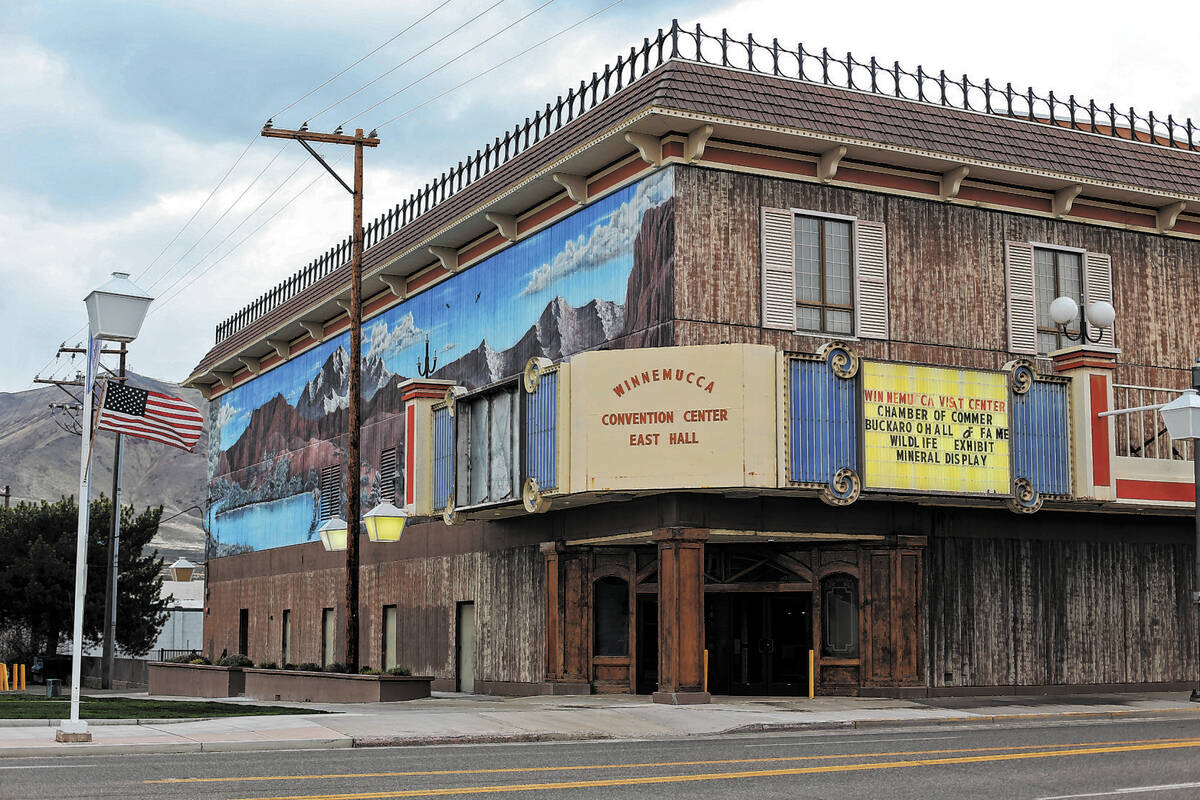Donald Trump commits to Nevada GOP 2024 caucus
Just hours after Nevada Republicans voted Saturday afternoon at its central committee meeting in Winnemucca to officially hold a presidential caucus, presidential candidate and former president Donald Trump had committed to participate in the 2024 proceedings.
Despite receiving some pushback before the event, the caucus received overwhelming support at Saturday’s meeting, Nevada Republican Party Chairman Michael McDonald told the Las Vegas Review-Journal on Saturday.
“It was very spirited,” he said.
During the meeting — which media outlets were not allowed to attend — Nevada Republican Central Committee members worked out the details of the caucus, which will take place Feb. 8, 2024, two days after the state-operated presidential primary election.
The Silver State joins Iowa in the list of early Republican states that will hold a caucus, but is the only one among those states scheduled to hold both a caucus and a primary. The Republican National Committee’s other early states — New Hampshire and South Carolina — will hold a state-run primary.
Presidential candidates won’t qualify for the caucus if they sign up for the state-run election. Delegates will only be given to candidates who sign up for the caucus, and signing up will cost them $55,000, or $35,000 if the candidate agrees to do an event with the Nevada GOP.
Hours after the meeting, Trump committed to the caucus, McDonald said. Vivek Ramaswamy also signed up and paid the full $55,000, McDonald said, but he expects others to join soon. McDonald said he has not heard from any presidential campaign that plans to participate in the primary.
The Review-Journal reached out to the campaigns of Ron DeSantis, Nikki Haley, Asa Hutchinson, Mike Pence and Tim Scott about which election they plan on participating in, but did not receive a response.
Caucus participants will cast a presidential preference poll vote in February. Results will be tabulated by precinct, finalized and released to the public that day, according to the Nevada Republican Party’s plans.
Precincts will nominate delegates, and in May, Republicans at the state convention will elect national delegates who will go to the Republican National Convention in Milwaukee the following month.
Members also voted for a resolution that will bar super political action committees from participating in the caucus because the party’s attorneys are cautious about super PACs and the use of dark money, McDonald said.
But the caucus has received some pushback from some Republicans who worry it will be confusing to voters when Nevada holds its own presidential primary election on Feb. 6.
Ensuring a successful caucus
Ahead of the Saturday meeting, Nevada Republican Club President David Gibbs and its leaders sent a letter to county party chairs urging them to vote against a resolution that would have amended the state party’s bylaws in order to hold the caucus.
Gibbs argued it will be confusing for the average voter to receive a mail ballot from the secretary of state for the primary and wonder why their favorite candidate isn’t there.
Campaigns have also expressed concerns that the Nevada GOP’s caucus is meant to help Trump win the state’s delegates. The political action committee backing DeSantis’ campaign ended door knocking in Nevada earlier this month, calling the state’s GOP leadership a “Trump puppet.”
McDonald, a good friend of the former president and a fake elector for him in 2020, had pushed back on that allegation, saying the caucus is not about a specific candidate, but about their efforts to have transparent elections.
Despite a 2021 state law requiring the state to offer a presidential primary if at least two candidates qualify for the ballot, Nevada Republican Party leadership has clung to its time-honored caucus, which it has held since the 1980s.
The caucus gives the Nevada Republican Party — whose ranks still contain members asserting election irregularities — control of the process: The caucus will implement voter ID, paper ballots and no early voting.
Gibbs expressed his disappointment about the vote Saturday afternoon, but said there are no hard feelings. He had the opportunity to present his opinion, and the members heard his concerns.
“Our job now is to make sure (the caucus) works,” Gibbs told the Review-Journal on Saturday. “That’s all there is to it.”
Contact Jessica Hill at jehill@reviewjournal.com.






















